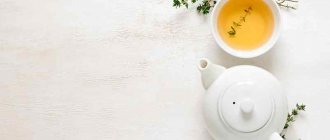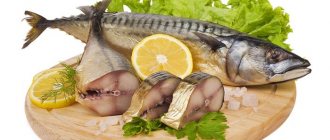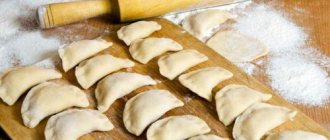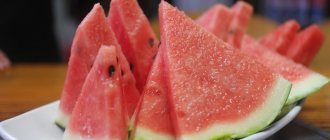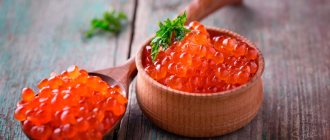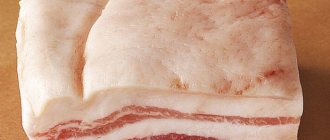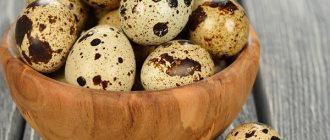23.09.2019 156177 0
Any mother wants her baby to grow up healthy. This is why breastfeeding is so important from the moment your baby is born. Breast milk contains all the beneficial substances, vitamins and microelements necessary for a newborn. During breastfeeding, it is very important that the mother’s diet is rational, varied and balanced.
Why is breastfeeding beneficial?
To begin with, it is worth noting all the benefits that breastfeeding gives to a newborn. The point is in the composition and other features of mother’s milk:
- It always has the optimal temperature.
- It contains all the necessary nutrients, vitamins and microelements.
- It is able to adapt to the needs of the child, changing its composition and nutritional value over time, as E. Komarovsky writes about this in “The Beginning of Your Child’s Life.”
As a result, the child receives a sterile and safe product that is suitable specifically for him. Of course, we should talk about safety only when the mother adheres to the appropriate diet. Molecules of food eaten by a woman through breast milk enter the baby's body.
Why proper nutrition is important when breastfeeding
As mentioned above, everything that the mother eats enters the baby’s body through breast milk. This brings enormous benefits to the health, full growth and development of the baby and the prevention of allergic diseases in the future. However, it can also cause harm to him, cause digestive problems and an allergic reaction, because the gastrointestinal tract of a newborn is still developing. Proper nutrition is the key to ensuring that a child receives only healthy things from his mother, which will help him grow and develop fully to the delight of his parents. Dr. Komarovsky recommends excluding from the mother’s diet what was not in her great-grandmother’s diet.
Milk formulas in the diet of a nursing mother
In situations where the mother's body is exhausted - for example, due to a difficult birth, if the woman has poor appetite, or if the child reacts poorly to food, formula milk can be added to the diet. Finnish infant milk formulas Valio Baby are designed for babies from birth to 3 years, but can also be used as an additional source of energy for nursing mothers. Valio Baby milk contains a lot of useful substances for the good growth and development of the child: proteins, polyunsaturated fatty acids Omega-3 and Omega-6, vitamins, minerals to ensure that the baby is strong, and a probiotic for proper intestinal function. All nutritional components are natural. Moreover, the product does not contain palm oil, the use of which in the food industry has caused much criticism in the medical community.
Some mothers drink cow's or goat's milk to gain strength or increase their own milk production. There is even a popular story that tea with milk enhances lactation. However, this is nothing more than a myth. Firstly, you can facilitate the process with the help of any warmed liquid, drunk shortly before feeding - even if it is ordinary water. Secondly, drinking unfermented cow's milk can ruin the mother's digestion and, as a result, cause intestinal colic in the newborn. Adapted milk formulas are purified from phosphorus, which is found in large quantities in cow's milk and interferes with the absorption of vitamin D and calcium.
Animal milk is not always well absorbed by the adult body - so why not replace it with a specially prepared pure product that contains so much that is valuable for the health of a nursing mother?
What determines the quality of breast milk?
Not only the foods and dishes allowed during breastfeeding influence, but also the state of the woman’s nervous system and her lifestyle. For obvious reasons, a young mother cannot help but be nervous, but she is within her power to build her own daily routine. It is recommended to devote more time to rest: the more time a woman allows herself to sleep and refuse to perform heavy household duties, the better she feels. And her good health is the key to the health of the baby, who will receive all the necessary substances from the breast milk of a calm and well-rested mother. So you can safely involve your husband in your household responsibilities (yes, he works, but motherhood is also hard work, which, by the way, is not paid), relatives, friends, or hired nannies and cleaners. A woman cannot feed normally if she does not have the opportunity to simply get enough sleep and do other things (we are not talking about cleaning and cooking, but about hobbies and cultural leisure).
What not to eat during lactation
Let's look separately at foods during breastfeeding that need to be limited or excluded. These include:
- thermally unprocessed products of animal origin - raw and poorly fried meat (kebabs, etc.), fish, sushi, unpasteurized milk, raw eggs
- any alcoholic drinks
- concentrated broths, canned food, pickles, marinades, sausages, hot spices and seasonings
- strong tea and coffee (safe amount of caffeine is up to 200 mg per day, a cup of coffee can contain 60-150 mg of caffeine, and tea – 30-60 mg)
Why are they dangerous? Everyone knows about the dangers of alcohol: it causes irreparable damage to health and destroys the organs of even an adult, and especially a small child. Coffee and strongly brewed tea contain caffeine, which, on the contrary, penetrates well into breast milk and has a stimulating effect on the baby's nervous system.
What a nursing mother should not eat - food list
Many foods that are normally accepted by the woman herself can cause allergic reactions in a breastfed baby in the form of rashes, diarrhea, and also spasms of the respiratory tract, which pose a threat to life.
A number of foods cause stomach upset, gas, and colic.
Some have adverse effects on the nervous system.
Finally, there are products that simply give milk an unpleasant taste.
Therefore, any mother is interested in such questions as what a nursing mother should absolutely not eat, what she should not eat in the first month after giving birth, and what to eat to avoid colic. Consider the list of prohibited foods when breastfeeding:
- Alcohol is the first taboo for a nursing mother. It contains dangerous toxins that cause the death of brain cells and is very dangerous for the immature liver of a newborn, and for all other organs. Children of drinking mothers may experience drowsiness, lethargy, slow weight gain, and delayed mental and motor development. The younger the child and the lower his weight, the slower alcohol is eliminated from the body, and a dose that is harmless for an adult for an infant may be excessive.
- Strong tea and coffee have a stimulating effect and adversely affect the nervous system. If it is difficult to give up these tonic drinks, drink only weak ones, preferably with the addition of milk. It’s better to switch to herbal teas that promote lactation and do not have an stimulating effect.
- Onions, garlic , richly seasoned with spices, spicy dishes - affect the taste of milk. The main danger is not even that the child will remain hungry, not wanting to drink milk with a specific taste, but that he may refuse to breastfeed. In addition, spices can cause stomach upset and vomiting.
- Chocolate, exotic fruits , especially citruses, fruits with orange and red colors, crayfish and shrimp are the most well-known allergenic foods. The dangers of allergens for a baby have already been discussed above. It is better to completely exclude foods that cause allergies in the vast majority of people from the diet so as not to provoke them. Highly allergenic products also include:
- seafood delicacies , fatty fish, caviar;
- fatty dairy and fermented milk products , cheeses, especially spicy ones;
- pickles, marinades, canned food , sauces containing preservatives, spicy foods;
- smoked meats , sausages, eggs;
- wheat, semolina, oatmeal;
- nuts, peanuts, exotic dried fruits, honey, caramel ; products containing flavors and dyes.
- Carbonated drinks , especially lemonade. The carbon dioxide contained even in mineral water causes fermentation, bloating, and can provoke gas colic. And all kinds of lemonades and sweet sodas are also allergens due to the high content of preservatives, flavors, and dyes. Juices should also be treated with caution, if possible, use homemade fresh juices rather than store-bought ones. Juices with bright colors - tomato, orange, red grapes, red apples - can also be allergens.
- Sugar and sweets , legumes, black bread, grapes. Like carbonated drinks, they stimulate the processes of fermentation and gas formation. Cucumbers, white cabbage, and apple peels also have a bad reputation as foods that cause colic and indigestion. If the child reacts normally to their presence in the mother’s diet, they can be eaten, but in moderation.
- Fatty foods . Fatty fish and dairy products have already been mentioned as allergens. Nursing mothers should also avoid fatty meat and lard; the saturated fatty acids they contain increase the fat content of milk and are poorly digested by the baby’s developing gastrointestinal tract.
- Sweets, rich pastries , baked goods, and fatty foods are also undesirable in a nursing diet because they do not bring benefits and can cause weight gain. After childbirth, when hormonal changes occur and there is not enough time to exercise, this can be a serious problem.
- Medications . A few words should be said about products that are not food, but the use of which by a nursing mother is also subject to restrictions. These are medications. Pharmacological drugs should be taken only in cases of brief necessity; the instructions usually contain information about the admissibility of taking this drug during lactation. Sometimes it is recommended to take a drug only if the expected therapeutic effect exceeds the possible harm to the body, and only a doctor can decide this.
Basic principles of nutrition during breastfeeding:
- As few restrictions as possible! Most often, it is dietary restrictions, not its diversity, that are harmful to the health of mother and child.
- The diet of a nursing mother in composition and quantity should be as close as possible to the diet of a normal healthy person leading a healthy lifestyle.
- If you don’t know whether a particular product that you intend to eat can harm a child, think about whether it can harm an adult who is worried about his health? If you find that the product is safe, then most likely it will not harm the child in any way.
Products recommended for consumption
Allowed foods during breastfeeding are vegetables, cereals, lean meat, low-fat soups, cheese, boiled and baked fish. What is their use?
- Vegetables. In the first weeks, it is recommended to eat raw vegetables with caution; it is better if they are boiled or stewed. Even when heat-treated, they are a source of vitamins and have a beneficial effect on the intestines.
- Porridges are very filling and healthy, because a nursing mother needs a lot of energy! They contain slow carbohydrates, essential protein, vitamins and a whole range of minerals and trace elements.
- Lean meat is boiled or baked beef, veal, rabbit. Birds are allowed only if they are domestic. Meat as a source of protein helps the body cope with stress and provides energy. A mother who is breastfeeding must consume 100 g of meat per day.
- Low-fat soups. In the first months of a baby’s life, it is recommended to prepare vegetable soups using beef or lean pork broth. They should be present in the diet of a nursing mother due to the presence of proteins, iron, amino acids and microelements.
- Cheese. This product contains calcium, which is so necessary for both mother and growing child.
- Boiled and baked fish. Its benefit is that it is rich in protein and omega-3, -6 polyunsaturated fatty acids. Fish also contains phosphorus and iodine, B vitamins necessary for a nursing mother.
- Milk, dairy and fermented milk products
are a source of protein, calcium, pre- and probiotics.
Fish and meat
In terms of their energy and nutritional properties, meat and fish come in second place. Yes, you can and should eat them, since they are sources of protein, fats and amino acids; fish contains iodine and vitamin D, which are so necessary for a growing, developing body. But it is worth considering the method of preparation and the type of fish and meat.
Fried, smoked, and dried dishes made from these products are strictly prohibited. Both meat and fish should be prepared only by boiling, stewing or steaming. The last option, if it also took place in a slow cooker, which preserves all the vitamins, will be the best.
As for the varieties of meat and fish, then only lean ones. If it’s meat, then rabbit, beef and turkey are better (the first product is the healthiest). If fish, then: red in limited quantities (may cause allergies) - pink salmon, sea bass, salmon, sea bream, salmon, trout; white - cod, pike perch, flounder, potasu, hake, pike, perch, roach, ruff, bream, tench.
It is important!
The list of products during breastfeeding can be gradually increased.
It is worth introducing fruits and other new dishes one product at a time, while observing the child’s reaction to updating the diet for several days. Proper nutrition for a nursing mother is very important to ensure that the baby receives as many essential substances as possible from mother's milk. And then breastfeeding will be beneficial for the baby, and will help the nursing mother enjoy her new role and realize the happiness of motherhood.
General nutrition rules for nursing mothers
The question - what can a nursing mother of a newborn eat - does not have a clear answer. It often happens that pediatricians recommend one thing, grandmothers recommend another, and lactation consultants recommend another. The hormonal background of the baby's mother is unstable, and the flow of various information is sometimes disturbing. A new role helps to gain new skills - the first swaddling, the first diaper change, the first bath. The first cry at night, and the young mother reproaches herself for eating a sandwich with “forbidden” sausage in the evening.
To prevent this from happening, you need to know the basic principles of nutrition during lactation. The medical literature says a lot that you need to eat little, but often. Take complex carbohydrates, watch the number of calories. But women in the new and unusual status of MOTHER do not always even manage to remember whether she brushed her teeth in the morning. And counting the calories eaten and the number of glasses of water drunk is almost impossible. Therefore, our goal is to tell you as simply as possible how to take care of yourself and your baby while remaining in a comfortable diet.
Almost all lactation consultants agree that the products consumed do not have a direct effect on the composition and properties of milk. But this fact is not a call to action - eat everything that is on the shelves of the refrigerator. During pregnancy, a woman monitors her diet very carefully and refuses all harmful foods. And during lactation, proper, complete and balanced nutrition is necessary. Any person who cares about their health has a diet similar to that of nursing mothers.
Studies have revealed that the baby’s body reacts mainly not to the foods that the mother consumed, but to how the food affected her body. For example, some foods can cause heartburn or flatulence. Such unpleasant manifestations affect changes in the blood, which subsequently leads to changes in the composition of milk. The main task is to trace which food causes a negative reaction in the baby. Therefore, you should not remove all “complex” foods from your diet.


